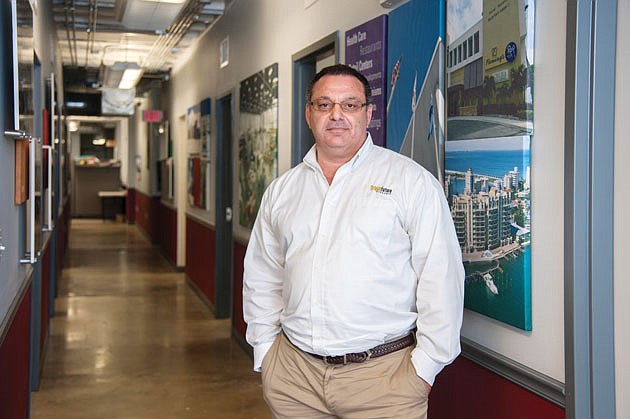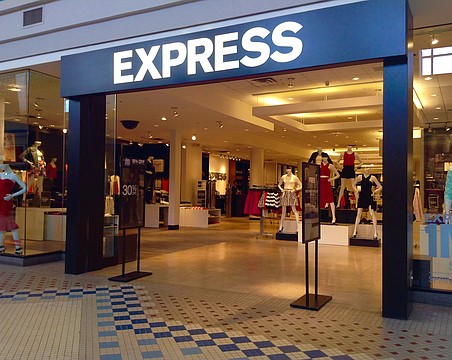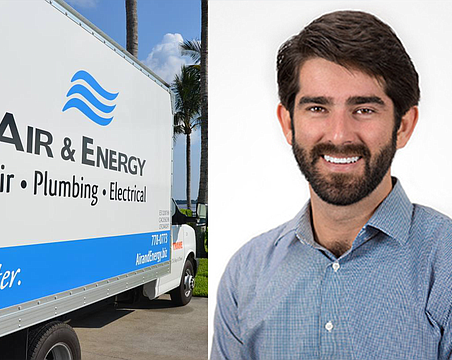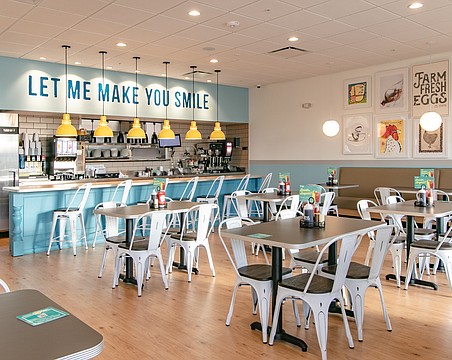Steve Panagiotakis definitely saw the need for the Construction Rodeo the Gulf Coast Builders Exchange held this past May.
Like many other GCBX members — and contractors in general across the region — the vice president of operations for Bright Future Electric in Sarasota has found it a constant challenge to hire the employees he needs. So he was happy to be one of more than 50 member participants at the recent GCBX event aimed to teach local students about opportunities in construction and the trades. Another goal of the event is to introduce students to local companies with jobs to fill.
Bright Future Electric did more than inform the 350-plus students who attended the rodeo. It actually ended up hiring 18 as paid interns — a one-day hiring boon. “We had a handful of students we knew we wanted to make offers to,” says Panagiotakis, “but we didn't realize it would be so many.”
Hiring younger workers is vital to the future of the company, where the average age of employees keeps creeping up. As staff gets older, the need to replace them down the road intensifies, and there aren't a lot of 20-something employees currently rising up the ranks. “That middle generation is missing,” says Joe Dunn, senior project manager for Bright Future Electric.
Getting students interested in careers in electricity as early as possible is one key to finding younger people, say company officials. Catching them before their junior year of high school, for example, allows them to begin interning over summer vacations and enroll in a technical program at somewhere like Suncoast or Manatee Technical College. The apprenticeship period lasts four years, or 8,000 training hours, so the sooner students start, the sooner they can take their licensing exam to become a journeyman electrician — and be ready to replace retiring employees.
Becoming involved in the industry at a young age through internships also allows students to determine if the electrical field is the right fit and to learn in what areas they might excel. “By starting to do work for us, it helps them identify if this is something they truly want to do,” says Panagiotakis.
A few student hires haven't worked out for the company over the years. But many others are on track for eventual employment at Bright Future Electric, which has had an office in Sarasota since 2009. (The company started with locations in the Orlando area and Birmingham, Ala., then added branches in Sarasota, Destin and Fort Myers. Its headquarters is in Birmingham.)
The firm concentrates on commercial and industrial clients, doing electrical work at the new-construction phase for condos, hotels, schools and assisted-living facilities, among other projects. Current local projects include the Sarasota Modern Hotel, in Sarasota's Rosemary District, and a new USDA facility in southern Manatee County.
Revenues at the Sarasota office have grown 72% from 2012 to 2016, but Panagiotakis admits labor challenges impact the company's growth rate. “We don't take jobs first and then find employees,” he says.
In general, the firm grows its supervisor ranks from within, helping its employees move up into supervisory and managerial roles. Bright Electric has about 300 employees companywide, and 125 in Sarasota and Fort Myers. “It's a long-term commitment to our guys; that's how we grow,” says Panagiotakis.
That upward mobility, of course, then creates the need for new entry-level employees like the ones hired at the construction rodeo.
Those students have now gotten a taste of what an electrical career is like through an internship that provides hands-on instruction.
“We don't need laborers,” says Dunn. “I don't want people shoveling; I want people working with us and learning the trade.”
Panagiotakis hopes more local companies and high schools participate in next year's construction rodeo. Like many of his peers, he also hopes not all students keep getting pushed toward a four-year college, a path that's not right for everyone. “This isn't just a job,” Panagiotakis says. “This is a career.”






